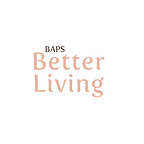Speed Limits
Slow Down to Introspect
The traffic in Atlanta is awful. Legendarily awful. In 2017, it was rated the eighth-worst in the world. Rush hour is miserable — starting as early as 4 AM and lasting until 10 AM. Six hours! Needless to say, traffic congestion leads to significant angst and frustration in most commuters, including me. It’s not uncommon to see drivers slamming brakes, hitting the steering wheel, glaring at other drivers, and perhaps making not-so-nice gestures. The COVID-19 pandemic has temporarily reduced this problem, though occasionally, I still get angry at someone on the road who is clearly not as thoughtful or as skilled a driver as me.
Last week, for example, a clearly deranged individual had the audacity to drive at the speed limit in the far-left lane on I-85. Let me repeat that — HE WAS DRIVING AT THE SPEED LIMIT IN THE FAR-LEFT LANE! ‘What nerve! Who does this clown think he is?!’ As I overtook him, I gave him a cold stare of contempt and disgust and congratulated myself on how excellent a driver I was. Later that evening, after cooling off, I had a brief moment of clarity (along with some remorse). I remembered something the comedian George Carlin said, “I drive responsibly, but people who drive faster than I do are maniacs, and people who drive slower are idiots.”
For the most part, increased feelings of self-worth and self-esteem are suitable for individuals and societies alike. However, the problem we face today is that this drive toward increased self-confidence has occurred exclusively of necessary self-awareness. This imbalance leads to highways filled with angry people, like me, overestimating their driving skills. Unfortunately, this sense of superiority is not just isolated to the interstate. Instead, it spills over into other realms of life — sports, politics, religion, value systems, and virtually anything in which there can be more than one opinion. The mindset of caring only about my viewpoint is not just annoying but, more importantly, corrosive and detrimental to me and those around me.
There are a couple of things I’ve come to realize. First, the world around us is noisy, messy, and endlessly nuanced. Second, the people who live in this world are complicated, contradictory, and flawed. We can be beautiful, yet ugly; simple, yet sophisticated; serene, yet noisy; kind, yet cruel. We are only reliably consistent in our inconsistency. Despite being flawed, or perhaps even because of it, we are almost always worthy of compassion and perhaps even redemption. Unfortunately, we have come to see the world not as it is but as we would like it to be — a Disney movie.
In Disney movies, the good guys are always good, and the bad guys are always bad. There is no “in-between”. Even if you’ve never seen a Disney movie, it’s easy to differentiate the heroes and villains simply based on their appearance, homes, or even pets. In the Disney universe, everyone and everything is binary. Unfortunately, in the real world, very few things are black or white. Even something as universally agreed upon as “puppies are cute,” which I assume most will agree with, has some dissenters who will debate the point (I know — weirdos).
Unfortunately, this oversimplification and loss of subtlety has led to a society in which we are too quick to criticize and belittle others — their appearance, dress, beliefs, choices, traditions. We have come to see ourselves as the arbiters of rightness, righteousness, and coolness. In a world of increasingly limited resources, self-grandiosity seems to be in endless supply. My kids are exceptional, but other people’s kids are just average and look weird. With age, I get wiser and more distinguished, but other dads get older and fatter. My political opinions are well-formed and brilliant, but others’ views are superficial and absurd. With the growth and evolution of social media, it’s easier to find smaller and smaller groups sharing my belief systems and interests, further validating my increasingly myopic perspective. Thus, the bubble I live in becomes smaller, and the echoes in the echo chamber louder. Just listen to political talk radio for a few minutes to quickly understand that this is a widespread problem.
So how do we fix this? I am a “glass is half-full” kind of guy and see the world as fundamentally safe and people as generally good. Considering the alternatives, this optimism is a good thing but needs to be applied judiciously when it comes to myself. To change my world view, I need to start by changing my internal view. I need more moments of reflection and clarity — intentional introspection, not to congratulate or bask in my achievement but rather to be skeptical and critical. It’s not fun. But this is how self-importance can shift to self-improvement. I need to be honest with myself and look to those I trust, respect, and love for guidance in being and doing better. Can I be a better father, husband, son, friend, devotee? Of course, I can and should. And while being frugal in lavishing praise on myself, I would be well-served in painting the people around me with broad, optimistic strokes. Rather than pinpoint differences, focus on the commonalities. Rather than focus on grievances, focus on praise. Does one bad act or trait define a person in his or her entirety forever? I certainly hope not. If that were true, the world would be a terrible and scary place. But it’s not. Remember, all people, regardless of flaws, are worthy of some compassion and redemption.
Perhaps next time I get angry on the interstate, rather than blaring the horn at someone going too slow, I should look at myself in the rear-view mirror, take a breath, and just slow down myself.
Dr. Kashyap Patel, Cardiologist
Atlanta, Georgia
